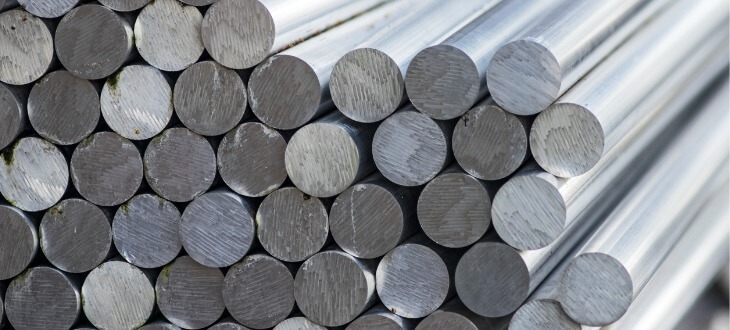Aluminum is a metal that is known for its lightness and strength. It is also a good conductor of heat, which means it transfers heat quickly from one place to another. This property makes aluminum useful in various applications, such as cookware, heat sinks, and electrical conductors.
How Does Aluminum Conduct Heat?
Heat conduction is the transfer of heat energy through a substance without the movement of matter. In metals, heat conduction occurs through the movement of free electrons. Free electrons are are not bound to a particular atom or molecule. They are able to move freely through the metal, carrying heat energy with them.
The higher the concentration of free electrons in a metal, the better it is at conducting heat. Aluminum has a high concentration of free electrons, making it a good heat conductor.
How Much Does Aluminum Conduct Heat?
The thermal conductivity of aluminum is 237 W/m·K. This means that 237 watts of heat will flow through 1 square meter of aluminum for every one degree Kelvin temperature difference between the aluminum’s two sides.
The thermal conductivity of aluminum is higher than most other metals but lower than others, such as copper and silver.
Why is Aluminum a Good Conductor of Heat?
There are two main reasons why aluminum is a good conductor of heat:
- Free electrons: As mentioned earlier, aluminum has a high concentration of free electrons. These free electrons are able to move freely through the metal, carrying heat energy with them.
- Metallic bonding: The atoms in aluminum are bonded together by metallic bonding. This type of bonding allows the electrons to move freely throughout the metal, which also helps to conduct heat.
Applications of Aluminum Conductivity
The good thermal conductivity of aluminum makes it useful in a variety of applications, such as:
- Cookware: Aluminum cookware is popular because it is lightweight and conducts heat evenly. This makes it easy to cook food evenly.
- Heat sinks: Heat sinks are devices that are used to transfer heat away from electronic components. Aluminum heat sinks are commonly used because they are lightweight and have high thermal conductivity.
- Electrical conductors: Aluminum is a good conductor of electricity. It is often used in electrical wires and cables, because it can carry a lot of current without overheating.
- Radiators: Radiators are devices that transfer heat from a fluid to the surrounding air. Aluminum radiators are commonly used because they are lightweight and have high thermal conductivity.
In conclusion, aluminum is a good conductor of heat. This makes it useful in a variety of applications, such as cookware, heat sinks, and electrical conductors. If you’re looking for a metal with high conductivity, consider aluminum. It has many properties that make it a great heat conductor, like its high concentration of free electrons and metallic bonding between its atoms.
Visit Tampa Steel & Supply for Quality Metal and Metal Processing Services
Do you need help with metalworking and keeping your metal fresh? The experienced professionals at Tampa Steel & Supply are here to help. We provide the highest quality of services to our customers.
Request a Quote Online
Or Call Tampa Steel & Supply at (813) 241-2801

